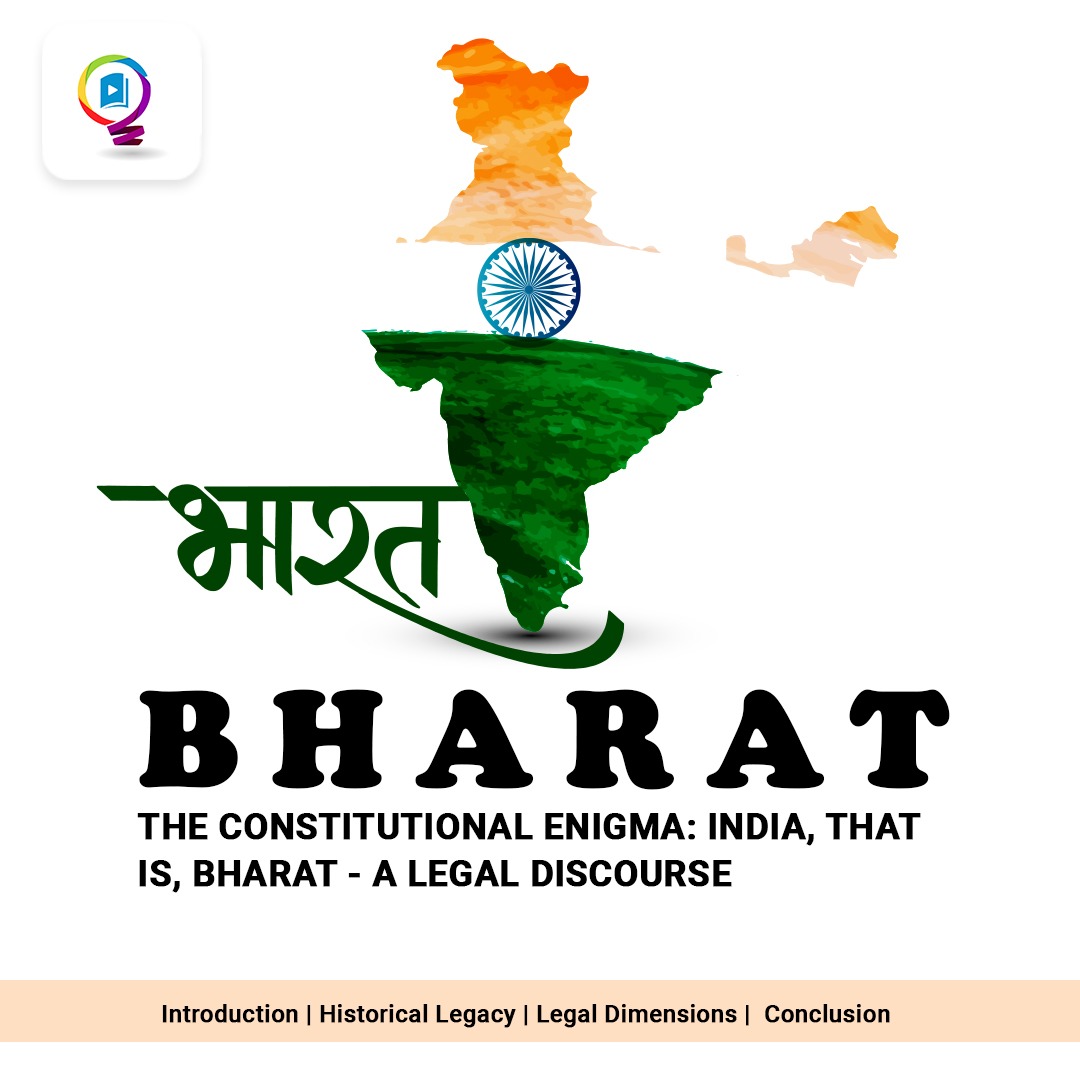CURRENT AFFAIRS
Get the most updated and recent current affair content on Padhaikaro.com
The Constitutional Enigma: India, That is, Bharat - A Legal Discourse
- Integrity Education, Delhi
- 19, Sep 2023

Introduction
As India's legal and constitutional landscape evolves, the debate over its official nomenclature has resurfaced, with discussions about renaming the Republic of India as the Republic of Bharat gaining momentum. This article delves into the historical, legal, and cultural aspects of this issue while closely examining the constitutional article that encapsulates the dual identity of our nation.
Historical Legacy
The two names—'India' and 'Bharat'—are deeply rooted in India's historical and cultural tapestry. 'India' finds its origin in the ancient Persian term 'Hindu,' while 'Bharat' harks back to the legendary king Bharata, as depicted in the Mahabharata. Both names have been used over millennia, each resonating with different aspects of India's diverse history.
Legal Dimensions
The legal aspect of this debate revolves around Article 1 of the Indian Constitution, which explicitly mentions 'India, that is, Bharat.' This article serves as the linchpin, outlining our nation's name and territorial boundaries. To contemplate a change in the official name of the Republic of India, the Constitution would necessitate an amendment.
Article 1 of the Indian Constitution reads as follows:
Article 1:
(1) India, that is, Bharat, shall be a Union of States.
(2) The States and the territories thereof shall be as specified in the First Schedule.
The inclusion of 'Bharat' alongside 'India' in the Constitution embodies the constitutional makers' respect for India's rich history, linguistic diversity, and cultural pluralism. Any proposed change in the name of our nation would require rigorous constitutional deliberation and amendment.
Linguistic Diversity
Language is another crucial facet of this discourse. India is a linguistically diverse nation, with a multitude of languages spoken across its expanse. 'Bharat' holds a special place for those who wish to preserve and promote the use of Sanskrit and its heritage. However, altering the official name to 'Republic of Bharat' could raise concerns about linguistic inclusivity.
Cultural Significance
The debate over India's name is not just a matter of semantics; it also touches upon our cultural identity. 'Bharat' symbolizes India's ancient culture and traditions, while 'India' carries historical and colonial connotations. The discussion extends to the heart of who we are as a nation, and any decision to rename the country should consider these cultural dimensions.
Conclusion
The buzz around renaming the Republic of India as the Republic of Bharat underscores the profound connection between names and national identity. The Indian Constitution, in Article 1, skill fully strikes a balance between acknowledging our historical roots and embracing the modern era. Any proposal to alter this constitutional name should be approached with the utmost care, considering legal, linguistic, and cultural sensitivities.
In the dynamic world of Indian law and constitutionalism, the name 'India, that is, Bharat' stands as a testament to our country's pluralistic ethos and historical legacy. The ongoing dialogue about the nation's name exemplifies the enduring relevance of our Constitution and the vibrant democracy it underpins. As we tread into the future, it is imperative to uphold the values enshrined in our Constitution while respecting the diversity that defines India, that is, Bharat.